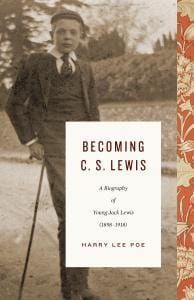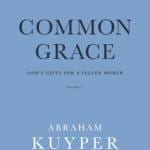If there is one writer who towers over the late 20th century Evangelical landscape, it is without doubt C.S. Lewis. Most of us grew up reading his Chronicles of Narnia, science fiction trilogy, and The Screwtape Letters, and many more of us have benefited from his non-fiction writings. Mere Christianity, The Problem of Pain, The Four Loves, The Abolition of Man, and The Weight of Glory are all deservedly considered classics. (For what it’s worth, my favorite of his books is God in the Dock…)
But who was C.S. Lewis? What events and ideas shaped him? What was his life like? If you’re like me, his autobiographical work Surprised by Joy leaves you feeling like some important events and facts have been left out. Not least because most of it focuses on his childhood and time in school and then skips ahead to his conversion. To be sure his point in writing was an exploration of his discovery of joy (hence the title), but those of us who appreciate his writing certainly want to know more.

This is where Harry Lee Poe’s new book is very useful. In Becoming C.S. Lewis: A Biography of Young Jack Lewis (1898-1918) we see the formative years of the man who was formative for so many of us. As the first part of what I think will be a three-part biography series, we get a deep dive into Lewis’s childhood and young adulthood. We see his relationship to his parents and brother, his rare friendships, his educational experiences, and, perhaps above all, his relationship with stories. Lewis was raised on the solid food of imagination, and Poe’s book lays that all out for us in detail.
I think this is important. What follows here is my own view and not that of a C.S. Lewis scholar (or even of someone who is well informed about the history of 20th century theology), but it does seem that the recent explosion of Biblical theology is directly related to a generation raised on Lewis. Biblical theology of course predates Lewis. Geerhardus Vos and Gerhard von Rad were doing their work in the early part of the 20th century when Lewis was still just a child. And yet, given how much stories shape his childhood and eventually help to form his mature writings, it only makes sense that those of us who were raised on Lewis want to explore the narrative of the Bible. This is not to undercut systematic theology, it is just to perhaps partially explain why theology has gone the direction it has in the last thirty years or so. Lewis has told us that stories are essential to human life, so we have tried to understand the Bible as a story. In doing so, both Lewis and we have found that the Bible is in fact a true story–the true story. And all of us are the richer for this approach.
Which means this book is all sort of useful. It also happens to be well-written, and absolutely is worth your time.
Dr. Coyle Neal is co-host of the City of Man Podcast and an Associate Professor of Political Science at Southwest Baptist University in Bolivar, MO











